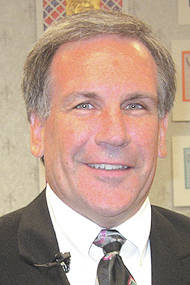
I recently characterized the work of the Ohio Department of Education’s (ODE) “Graduation Requirements and High School Redesign Task Force” as the quintessential political committee that spends a great deal of time talking around problems while solving none. I based that criticism on notes of a recent meeting, which showed that members spent time debating meaningless topics such as whether kids should be called “customers” instead of “students” and if “guidance counselors” should be called “life coaches” instead of discussing what research tells us about why some kids achieve success while others do not.
Without even studying the committee roster, I could have predicted the backgrounds of the members, but I decided to humor myself and look it up. Suffice it to say I was not surprised by what I learned.
According to the ODE website, there are 20 members on the task force. Thirteen, including State Superintendent Paolo DeMaria, are either ODE board members or staff. The governor’s office has a representative, while another participant is Senator Peggy Lehner, who is chair of the Senate Education Committee. Still another member is the director of Ohio Excels, which is “a non-partisan coalition of business leaders organization committed to improving education for every child in Ohio;” one is a parent representative; and three are current educators.
That’s right, a task force deciding the future of education is comprised of three current, practicing educators. The rest may or may not have any idea about the day-to-day challenges children (and educators) face.
That’s par for the course.
The standard practice for committees like this is to create a really cool name intended to impress the public (like the “Graduation Requirements and High School Redesign Task Force,” for example); have its members ignore the research on how kids develop; engage in ridiculous conversations that have nothing to do with student success (such as whether to call kids “students” or “customers”); and, in an effort to legitimize its work, announce that it will survey people for feedback.
Just like this committee did.
Task forces like this are doomed to fail, particularly if there is a leadership void, and there is most definitely a failure of leadership on this one. The state superintendent, for example, is no expert in education, but, rather, has spent his life studying and creating public policies. His lack of knowledge explains why his answer for every problem is to survey others to see what they think.
And don’t get me started on Senator Lehner. As the longtime chair of the Senate Education Committee, she has either participated in or created more ridiculous laws governing education than one could think possible.
Yet, here she sits on another committee that is supposed to transform education. She’s done quite enough transforming, thank you very much.
But, ultimately, as state superintendent, it is Mr. DeMaria’s responsibility to direct meaningful, productive discussions about education in Ohio. That is what effective superintendents do. They’re supposed to be the expert in the room. They don’t rely on board members and others with little to no experience in child development to control the narrative. They lead those who have charged them to lead. But, he can’t do that, because he doesn’t have the expertise.
As if to prove my point, Mr. DeMaria’s ODE biography champions policies or strategic plans he has helped develop. It also includes impressive descriptors like he is a “tireless worker,” “passionate leader,” “respectful listener,” and that he “celebrates the importance and service of teachers,” and “values equity and school leadership,” among other things.
Nothing bad there. In fact, they are nice personal attributes for any of us to possess. But, when it comes to effective leadership, they’re just a bunch of nice words that don’t say anything. There is no mention in his bio of his career in education, his undergraduate or postgraduate record in the field of education, or his expertise in education. That’s because he has none. As a result, when confronted with the many problems children who are not enjoying success face, he runs around the state asking other people what they think.
That’s not leadership.
There is certainly nothing wrong with taking input before making decisions. In fact, the best leaders do that by continuously engaging with people wiser than they are to find out what they know, by drawing wisdom from those conversations, then by using what they have learned to shape discussions to solve problems. They don’t wait until a specific topic is raised, then survey others to see what they think.
Since education is all about helping children grow, wouldn’t it make more sense to use the wisdom accumulated by child development specialists instead of politicians, business leaders, and board members, who may or may not have knowledge about how children grow? Think how much better off kids would be if we used what obstetricians, pediatricians, developmental psychologists, child psychiatrists, child psychologists, speech pathologists, occupational therapists, neurobiologists, and genetic psychologists know about child development to drive our discussions.
But, that’ll never happen, because it makes too much sense.
Tom Dunn is a former superintendent of the Miami County Educational Service Center.


